Home » Eat Empowered » A Nutritionist’s Ultimate Guide to Healthy Carbs
Contrary to popular belief, carbohydrates are not the enemy. In fact, carbs are an essential component of a healthy diet. After all, the brain requires at least 120 grams of carbohydrates per day just to function.
Before we dive into the healthiest carbohydrates you can eat, it’s important to understand what they are. Carbohydrates are a type of macronutrient made up of chains of sugar molecules strung together. Along with the other two macronutrients—fat and protein—carbs give your body energy when they’re converted to glucose, AKA sugar. Our bodies run on glucose, and our brains in particular need it to work properly. So, yes, carbs are important.
Simple Carbs Vs. Complex Carbs
You’ve probably heard of the terms “simple carbs” and “complex carbs” but do you know what they are? Examples of simple carbohydrates, which consist of shorter chains of sugar molecules, include the processed, added sugars found in sweets such as candy and soda.
Simple carbs are digested quickly, which means they’re more likely to cause a spike (and subsequent crash) in blood sugar levels. But, there’s a catch. Molecules such as fructose and lactose found in healthy, whole foods such as fruit and yogurt are also simple sugars. Unlike table sugar, AKA sucrose, these simple carbs are naturally occurring and exist in foods that also offer up key nutrients such as antioxidants and fiber in fruit, and protein and calcium in that yogurt.
Complex carbs consist of larger sugar chains that take the body longer to metabolize. As a result, they keep us full for longer. These carbohydrates are found in starchy foods such as sweet potatoes, quinoa and oats. But, just like with simple carbs, not all complex carbs are created equal.
Complex carbohydrates are also present in foods such as white bread and pasta. The difference is that these foods are made solely from the starchy component of wheat, instead of from the whole grain (which contains fiber). Basically, the fiber in these foods is extracted during processing. That’s important, since fiber is a zero-calorie, non-digestible carb that helps slow down the rate at which glucose is absorbed from the gut into the bloodstream.
When it comes to complex carbs, go for whole-grain options such as whole wheat bread, buckwheat or bulgur. Since they’re made from the whole grain, they still have their fiber component intact. Higher fiber complex carbs bring fewer blood sugar spikes, greater satiety and more steady energy levels compared to sugary sweets and refined carbohydrates.
RELATED: Why You Need to Eat a High-Fiber Diet
And fibrous carbs don’t just influence our glycemic response. They also support digestion (hello, regular BMs), gut health and normal cholesterol levels. Yes, please!
Keep reading for 18 of our favorite high-fiber carbs.
18 Favorite Fibrous Carbs
1. Almonds
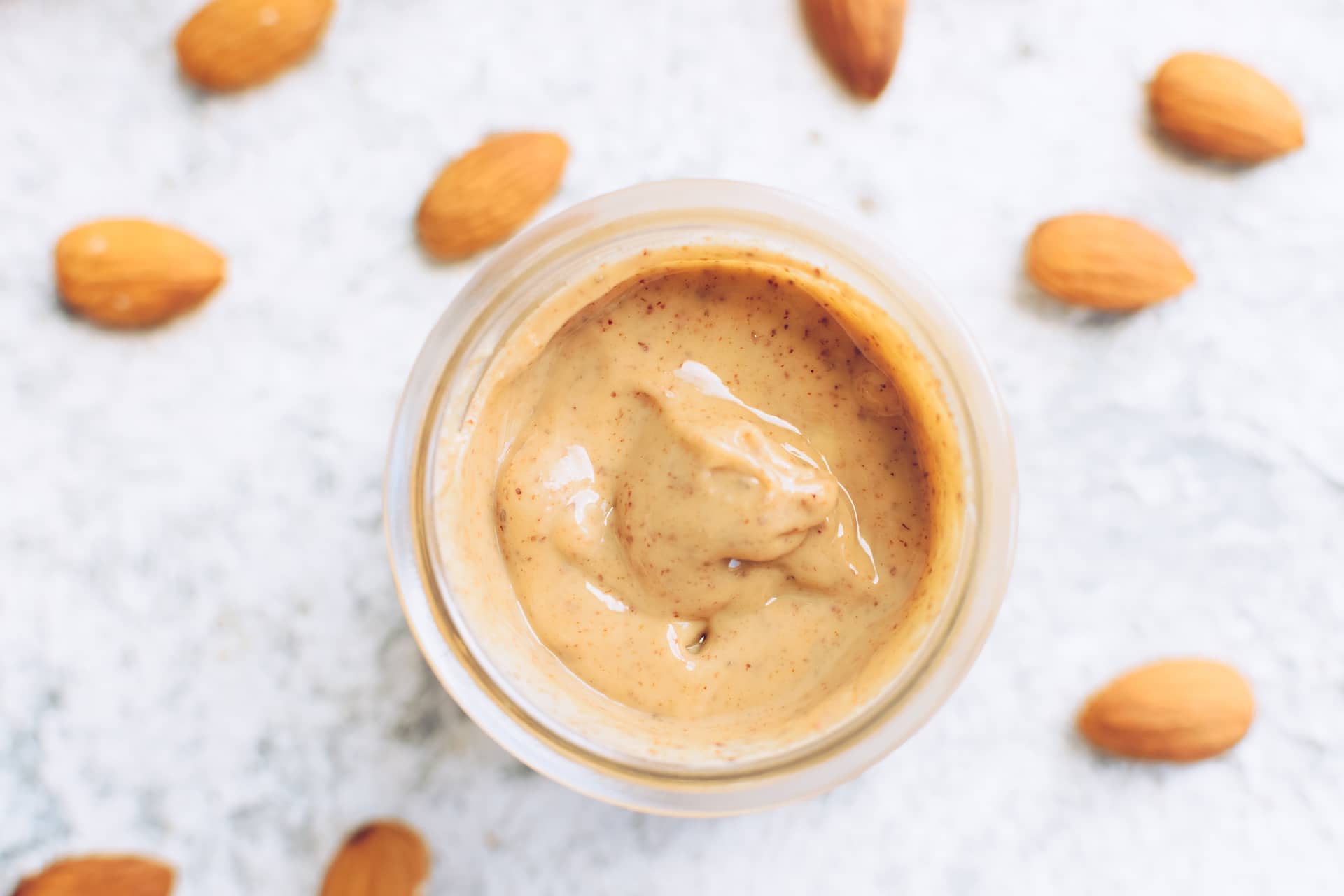
Much like chia seeds, almonds primarily consist of healthy fat. But the nuts do contain some carbs—and almost 5 grams of fiber per ¼-cup serving.
2. Apples
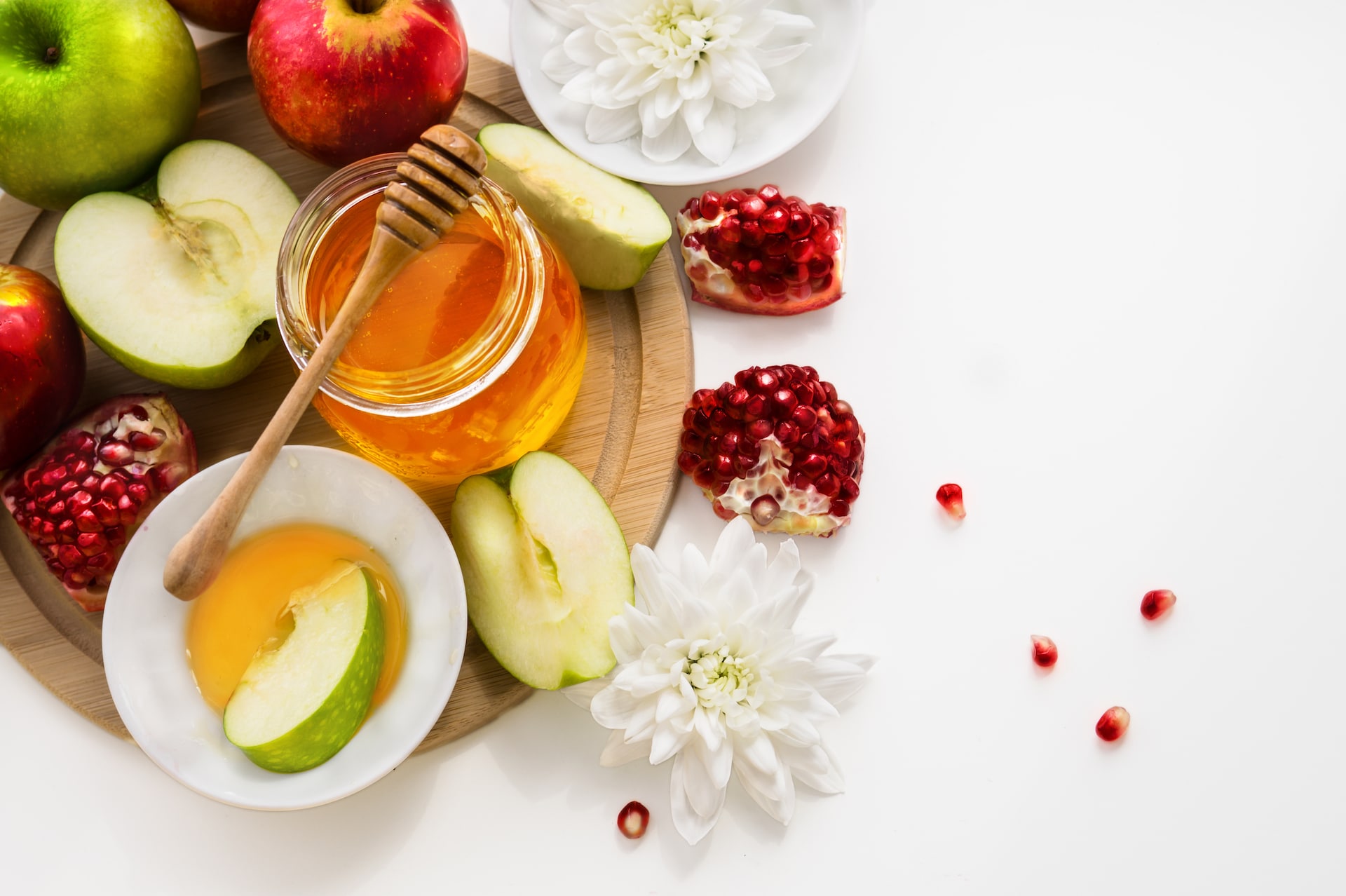
Sure, apples contain simple carbs like fructose, but they’re also packed with a solid 4 grams of fiber fiber each. Just make sure you eat them with the skin on to get those gut benefits.
3. Artichokes
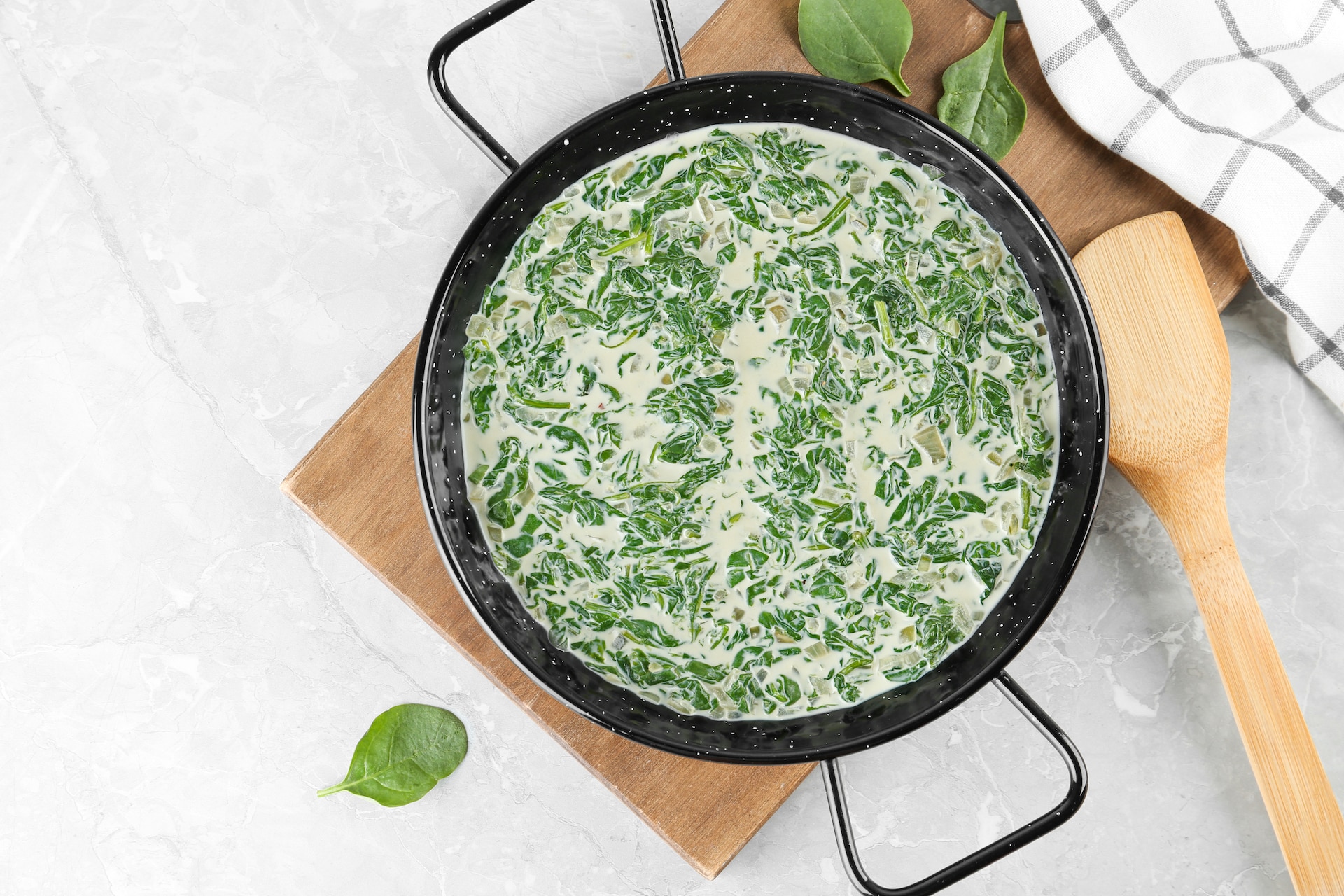
A great source of prebiotics, just one artichoke also serves up 7 grams of dietary fiber. Make your gut microbiome happy and try our favorite artichoke and hearts of palm salad today.
4. Black Beans
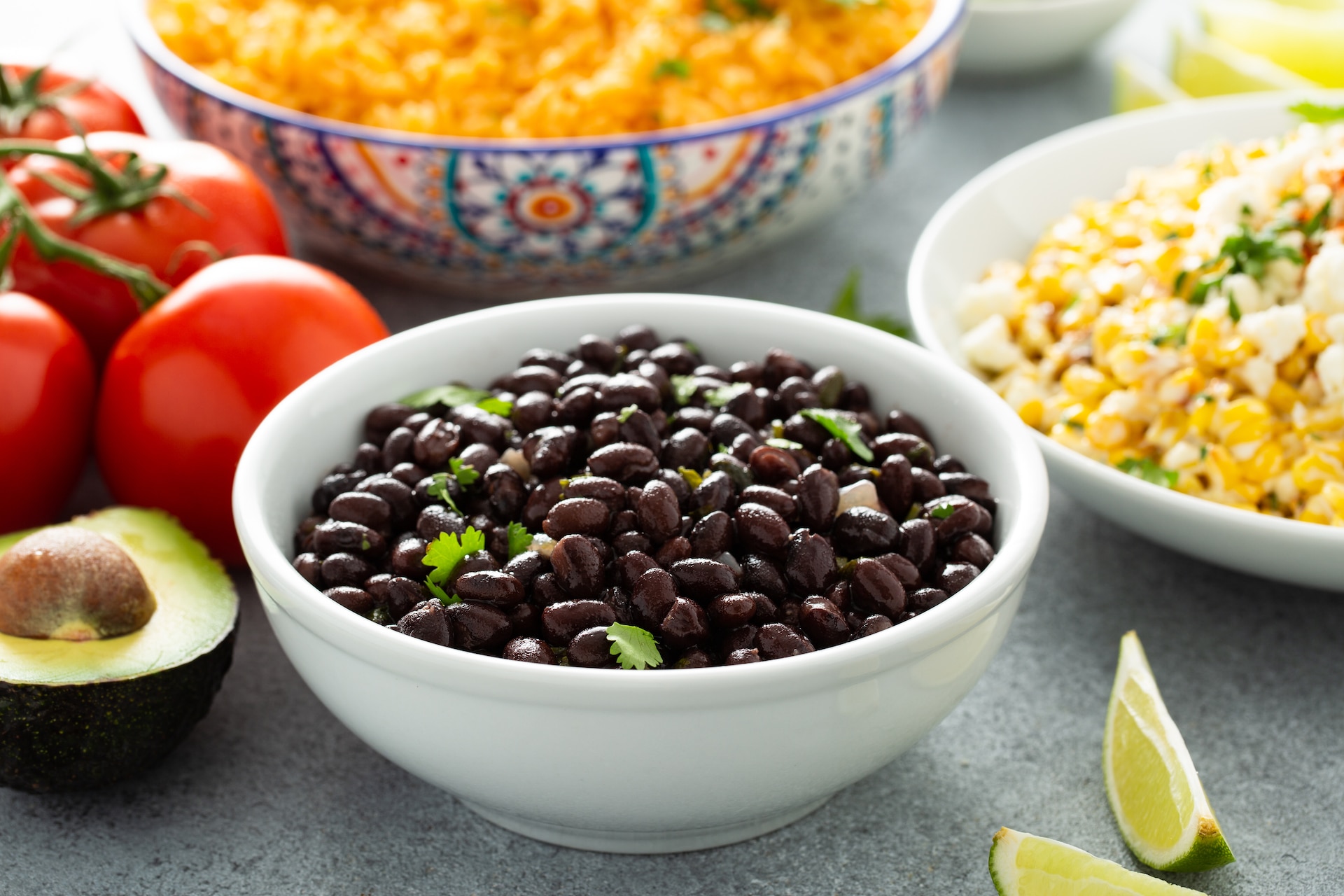
Most of us think of bread and pasta when we hear the word “carbohydrates,” but healthy, whole foods such as legumes also count as complex carbs. Options like magnesium-rich black beans are particularly gut-friendly thanks to their high fiber content. Just one cup of black beans provides 15 grams of dietary fiber.
5. Broccoli
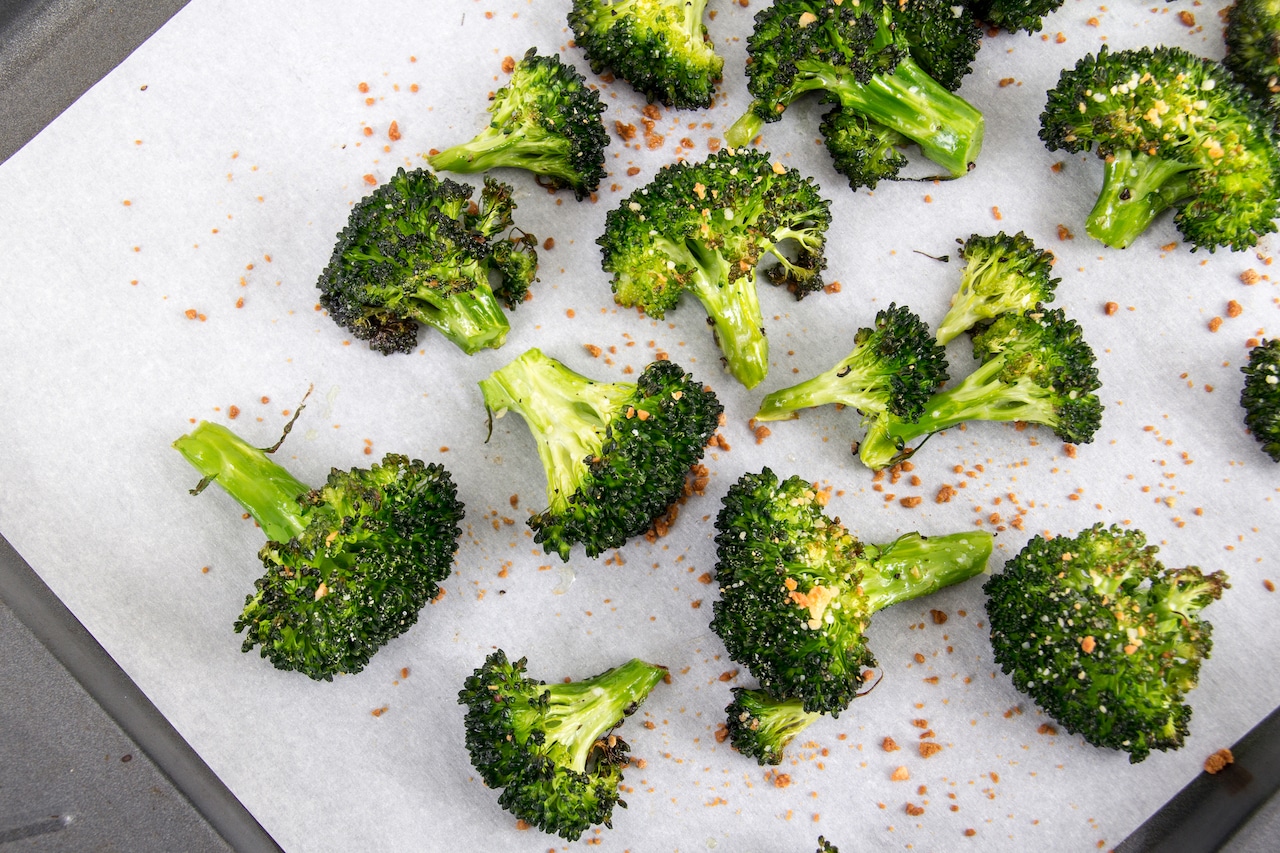
OK, so broccoli isn’t exactly a brownie and yet both contain carbohydrates. The difference is that broccoli also provides essential nutrients, such as detoxifying sulforaphanes, vitamin K and … you guessed it … fiber.
One cup of cooked broccoli can bring 5 grams of fiber to your plate. To nourish your body and soul, eat your broccoli, then enjoy a brownie!
6. Brown Rice
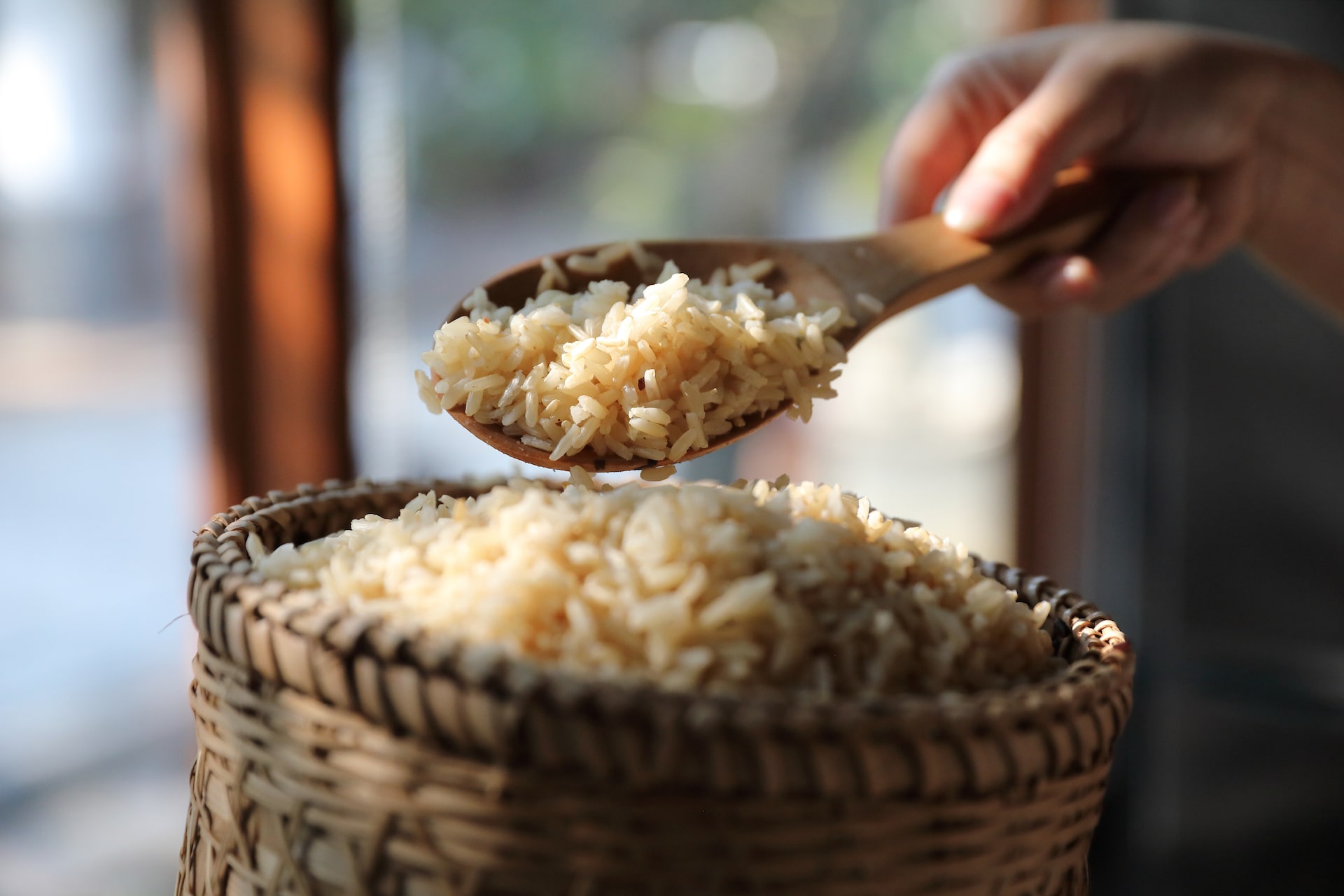
Build your next grain bowl with a brown rice base. The grain has its fiber component intact, so one cup of cooked brown rice can provide almost 4 grams of fiber.
7. Chickpea Pasta
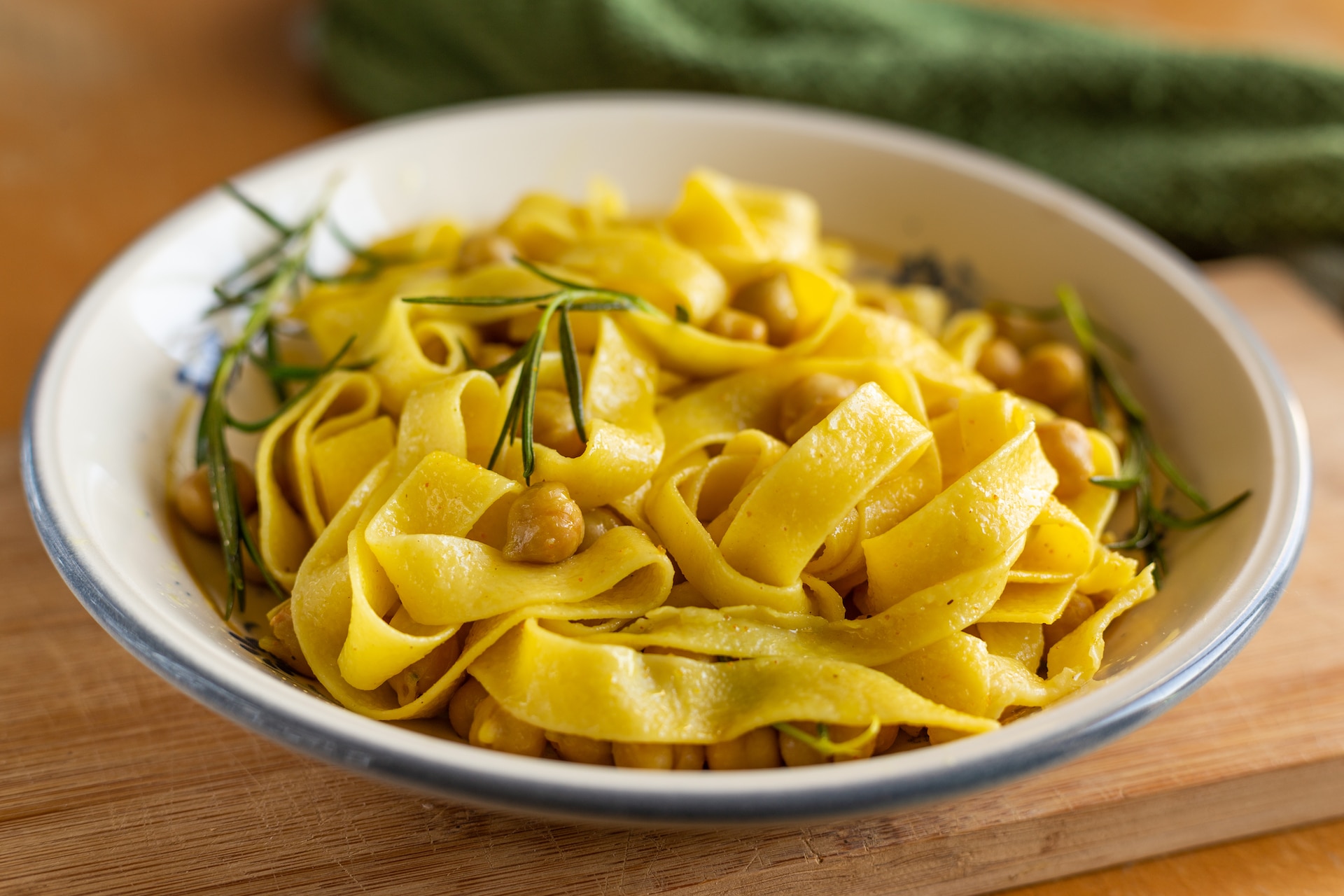
We’ve got nothing against a classic bowl of spaghetti, but legume-based noodles such as chickpea pasta provide slightly more fiber (and protein) per serving, making them a blood sugar-friendly choice for those focused on stabilizing their glucose levels.
A 2-ounce serving of chickpea pasta can put 7 grams of fiber on your plate. For reference: any food that contains more than 5 grams of fiber per serving is considered an excellent source of the non-digestible carb.
8. Chickpeas
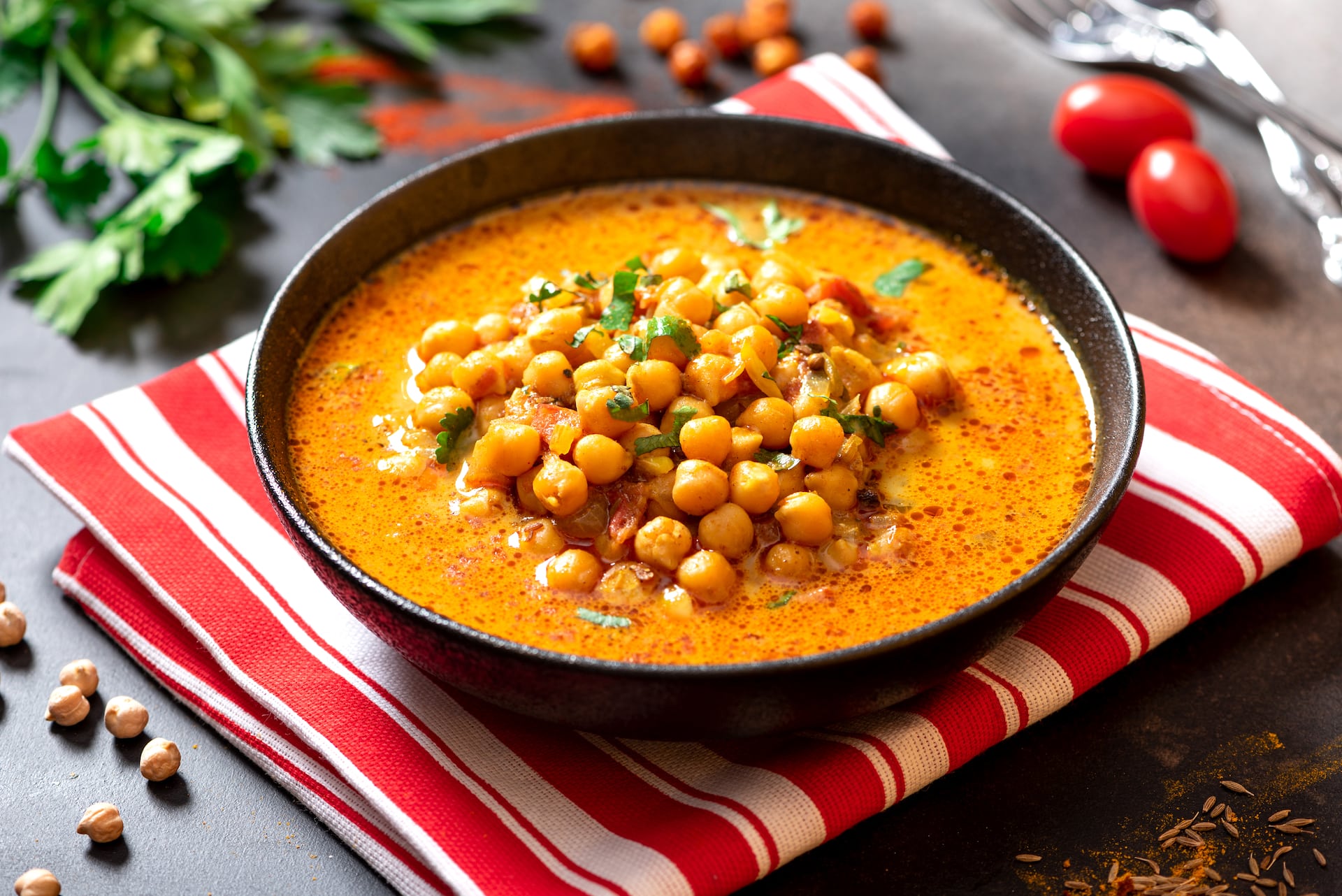
Hummus. Pasta. Stews. Chickpeas are versatile, complex carbs that are packed with healthy fiber: A ½ cup of the legumes contains 6 grams of filling fiber.
9. Chia Seeds
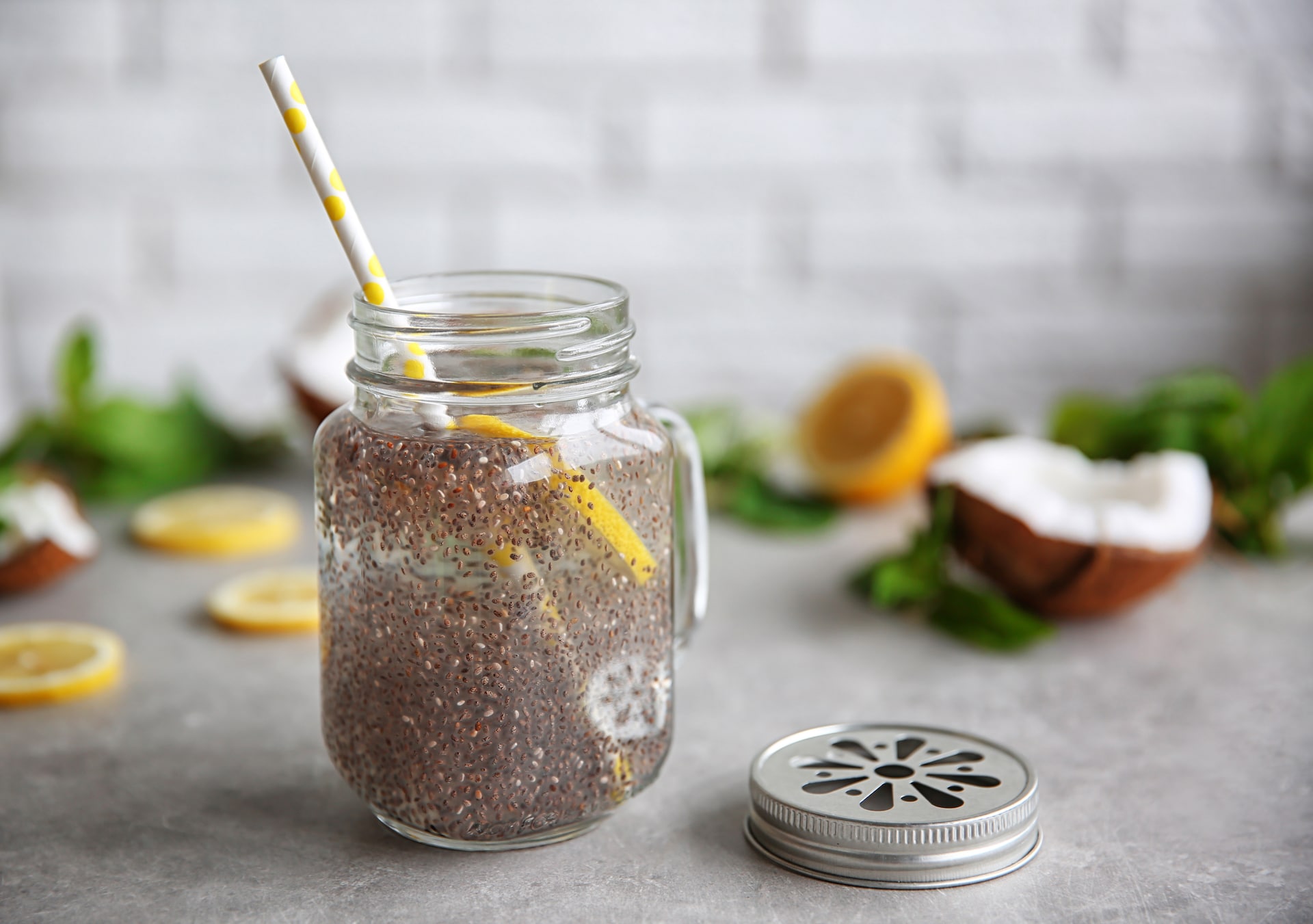
While we typically think of chia seeds as a source of good fats, they do contain a small amount of carbohydrates, the majority of which come from fiber. Just 2 tablespoons of chia seeds serve up an impressive 10 grams of fiber. Chia seed pudding, anyone?
10. Lentils
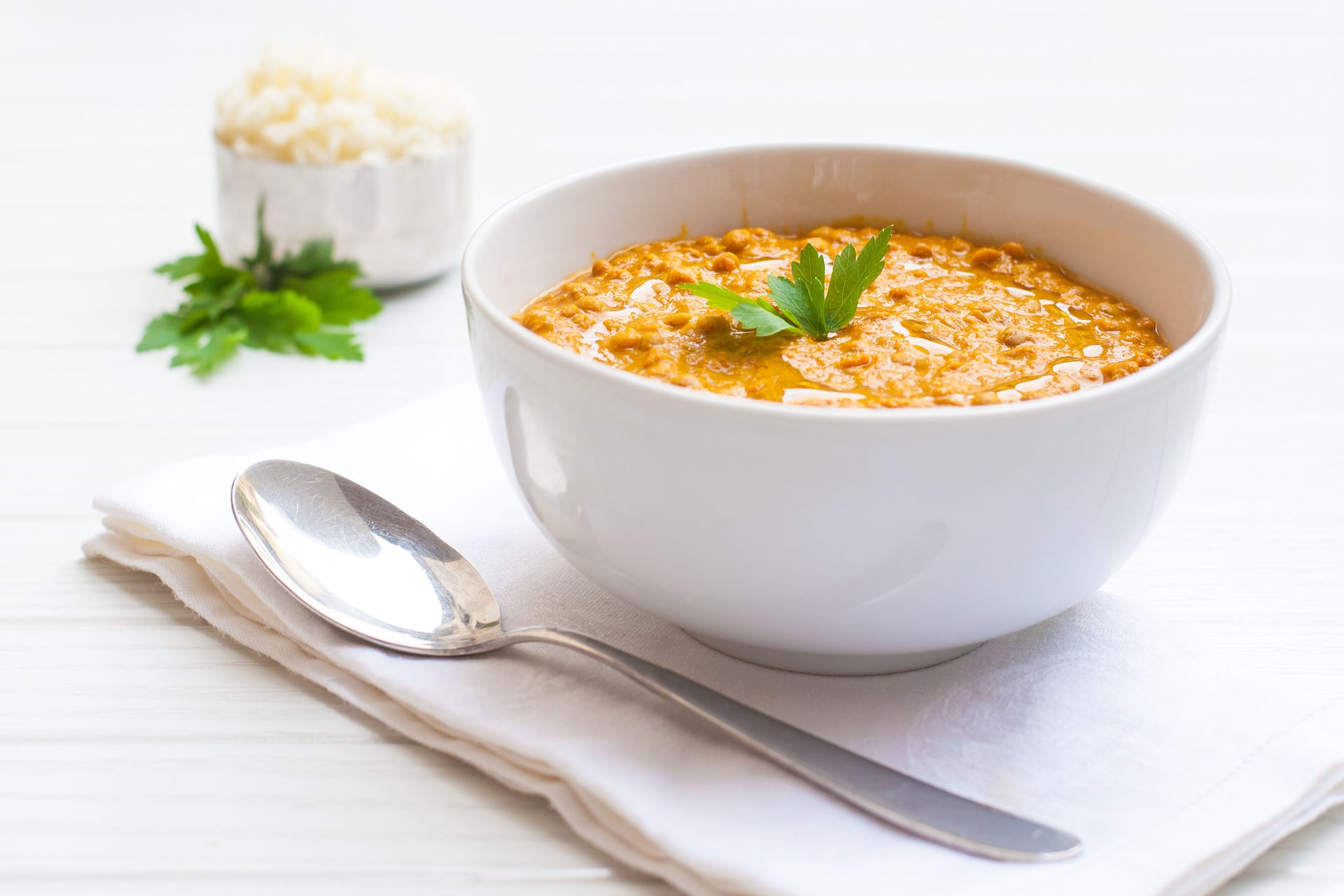
A cup of cooked lentils can provide nearly 16 grams of fiber, more than half of your daily needs for the nutrient. Don’t miss our nutritionist’s guide to lentils for everything you ever wanted to know about this fiber-rich legume.
11. Oat Bran
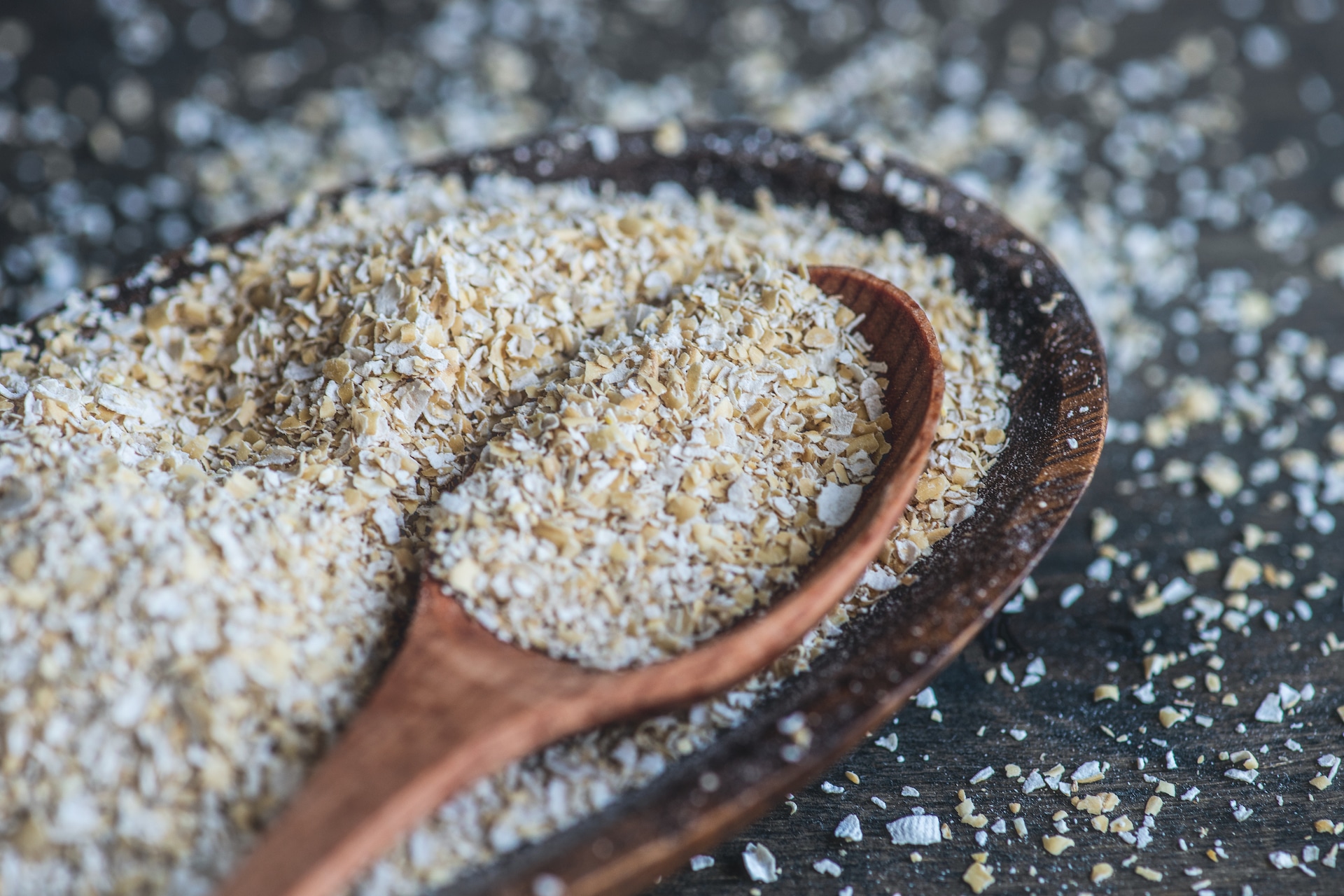
Whip up a batch of oat bran muffins the next time you need a fiber boost. One cup of oat bran supplies a stellar 15 grams of dietary fiber along with iron, magnesium and manganese.
12. Oats
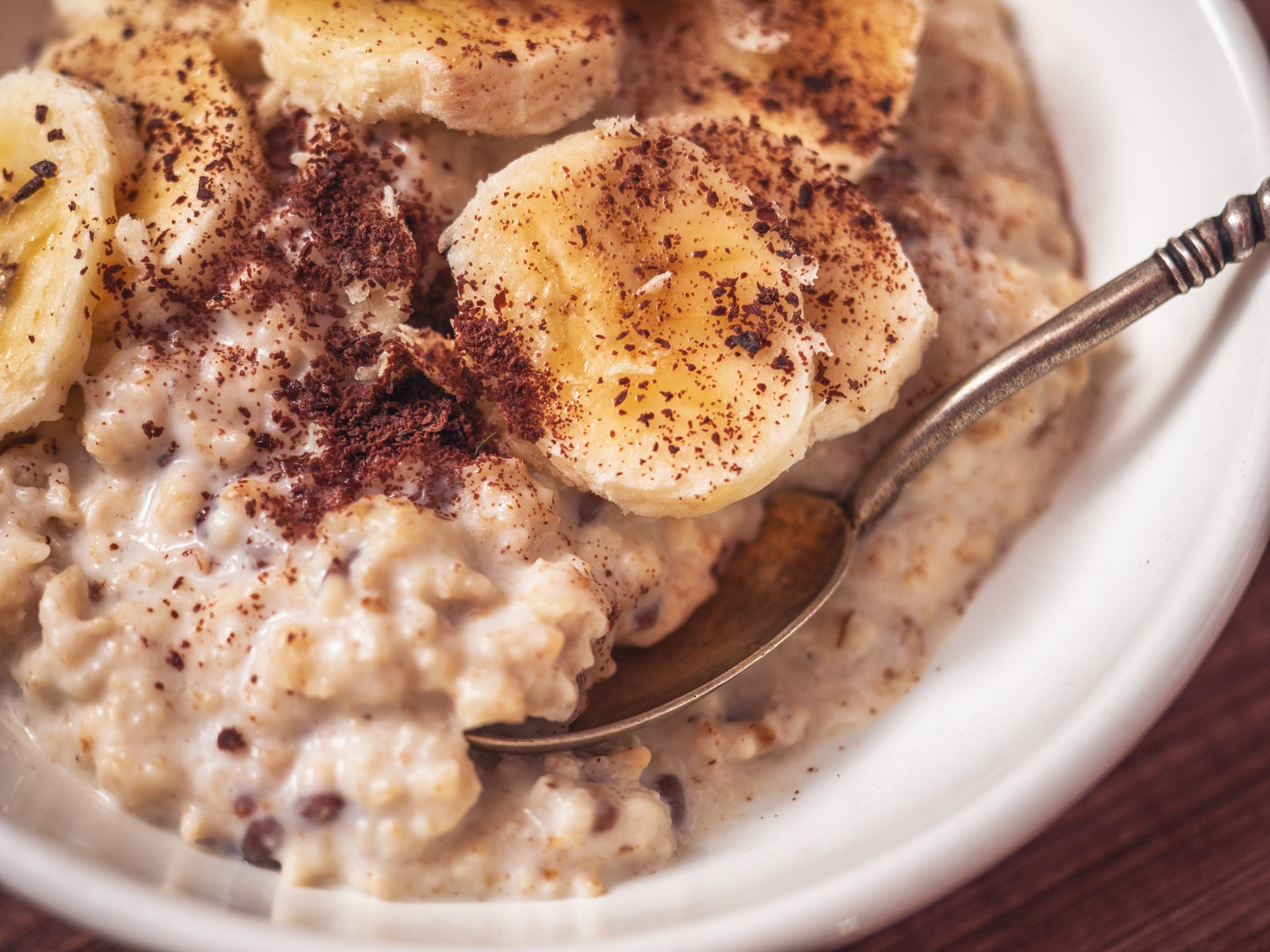
A cup of cooked oatmeal can put 4 grams of fiber in your bowl. Start the day with these energizing carbs using one of these nourishing oatmeal recipes.
13. Oranges
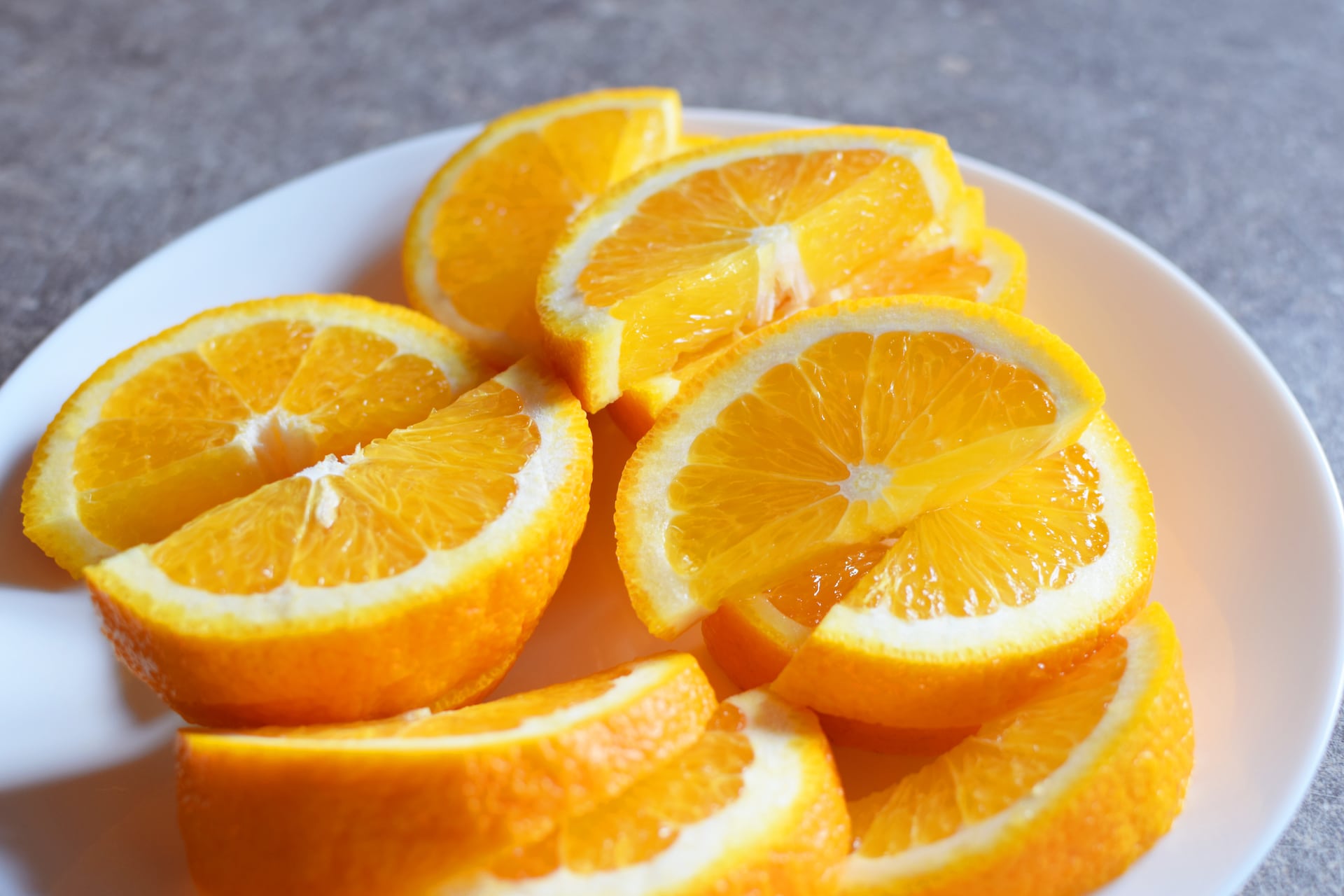
Oranges are a great source of soluble fiber that promotes healthy LDL cholesterol levels. One medium orange can serve up 3 grams of fiber. Added bonus: Oranges are super hydrating, thanks to the fact that they’re up to 87% water.
RELATED: 13 Hydrating Foods to Eat to Boost Your Water Intake
14. Popcorn
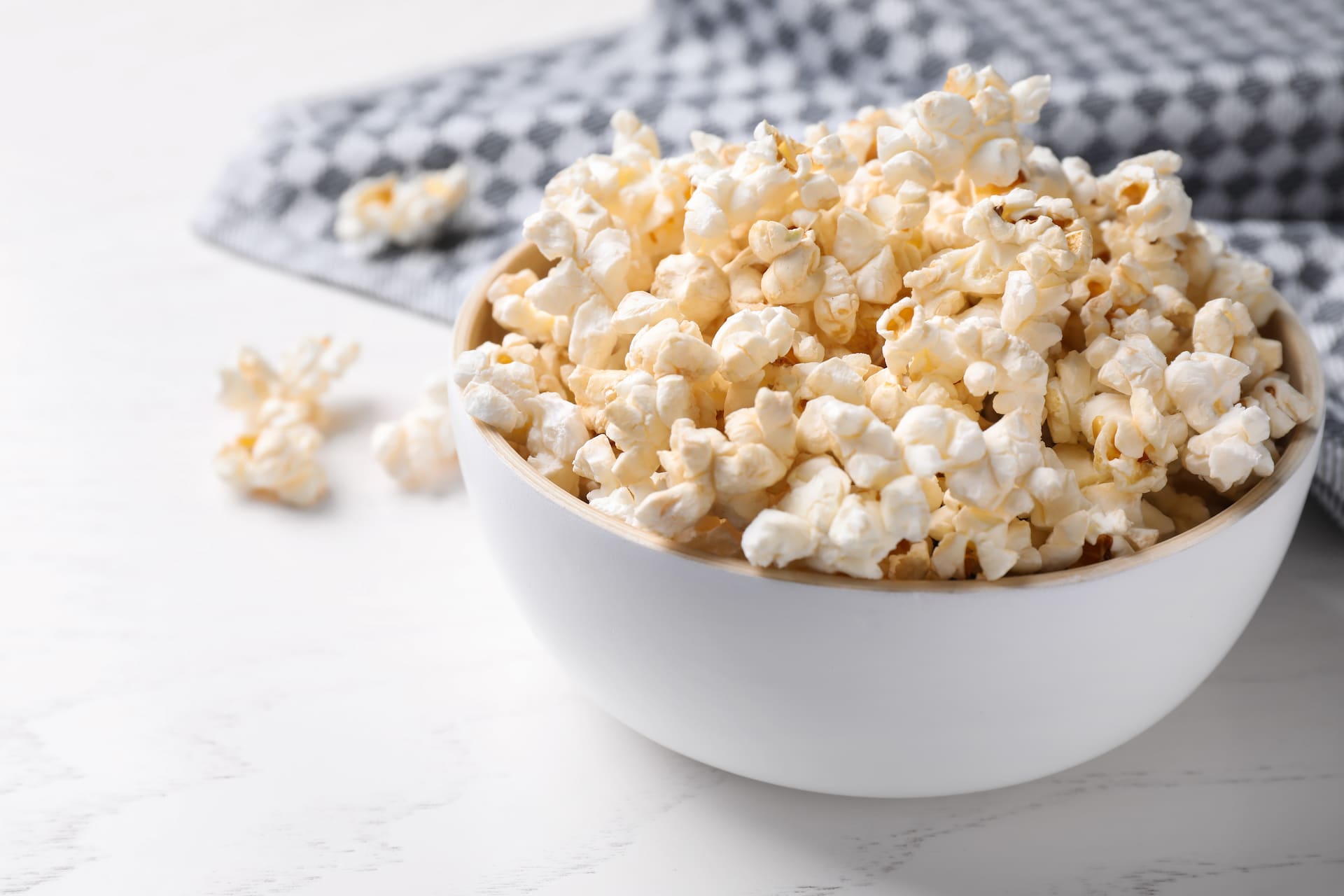
Go for a bowl of popcorn if you’re looking for a high-fiber, whole-food snack. Three cups of homemade popcorn consists of nearly 4 grams of fiber. Pro tip: Throw some nuts into the mix for an extra hit of healthy fats.
15. Potatoes
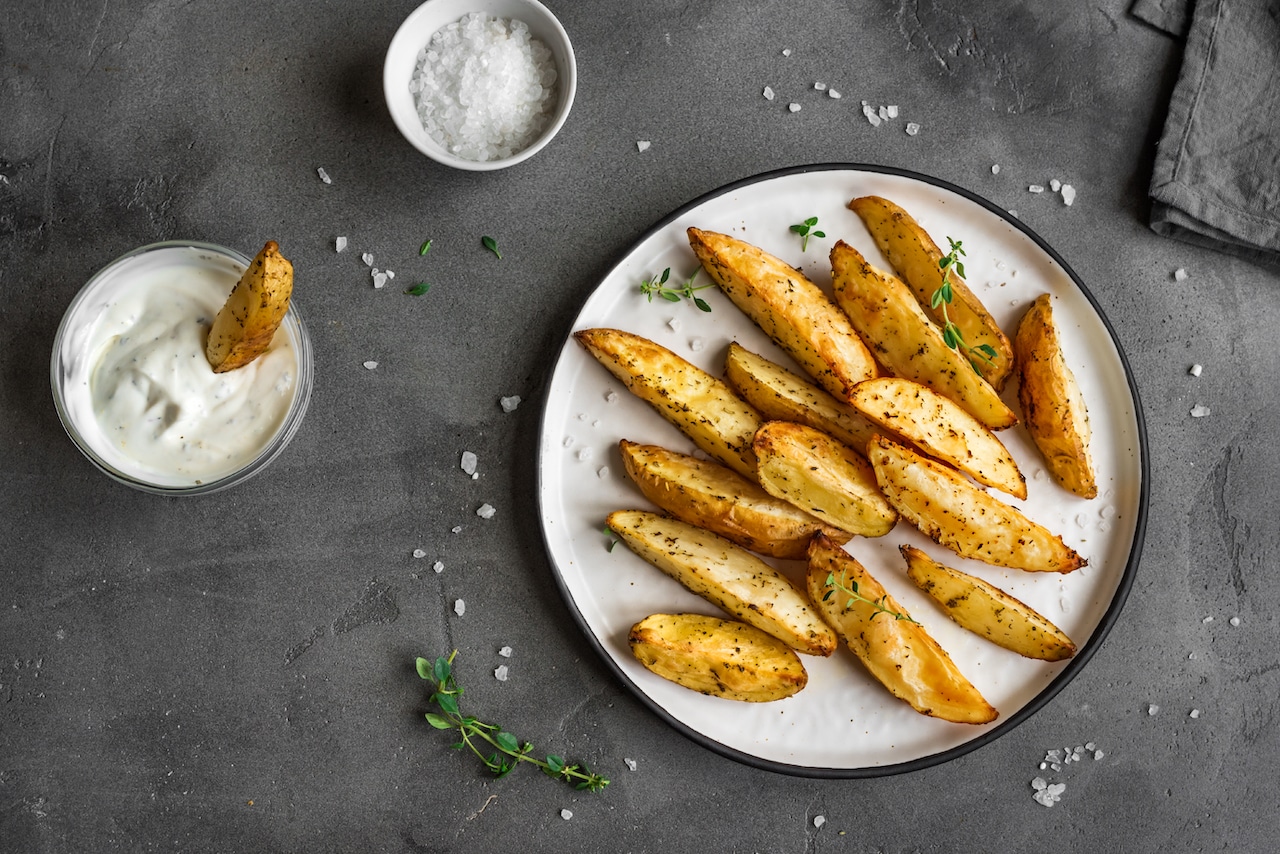
While sweet potatoes offer the antioxidant beta carotene, white russet potatoes are slightly higher in potassium. The good news? Any type of potato will provide fiber if you eat it with the skin on. Choose whichever type you prefer and you’ll get about 4 grams of fiber from a medium-sized spud.
16. Quinoa
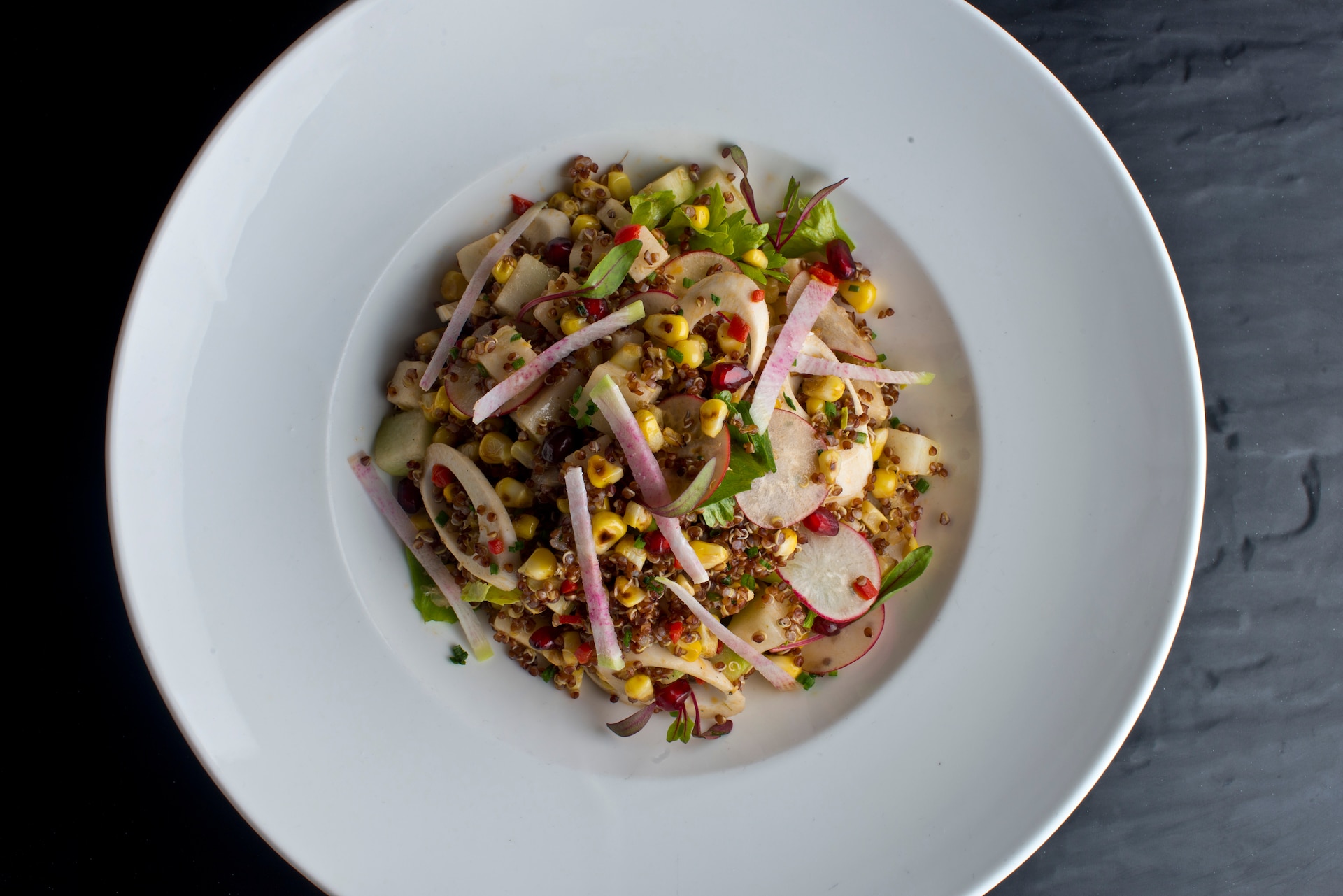
Quinoa is one of the only plants that counts as a complete protein. Also nice: One cup of cooked quinoa delivers 5 grams of fiber and 8 grams of plant protein (more than you’ll get from one egg!). Try these healthy quinoa stuffed peppers for an easy vegetarian meal.
17. Raspberries
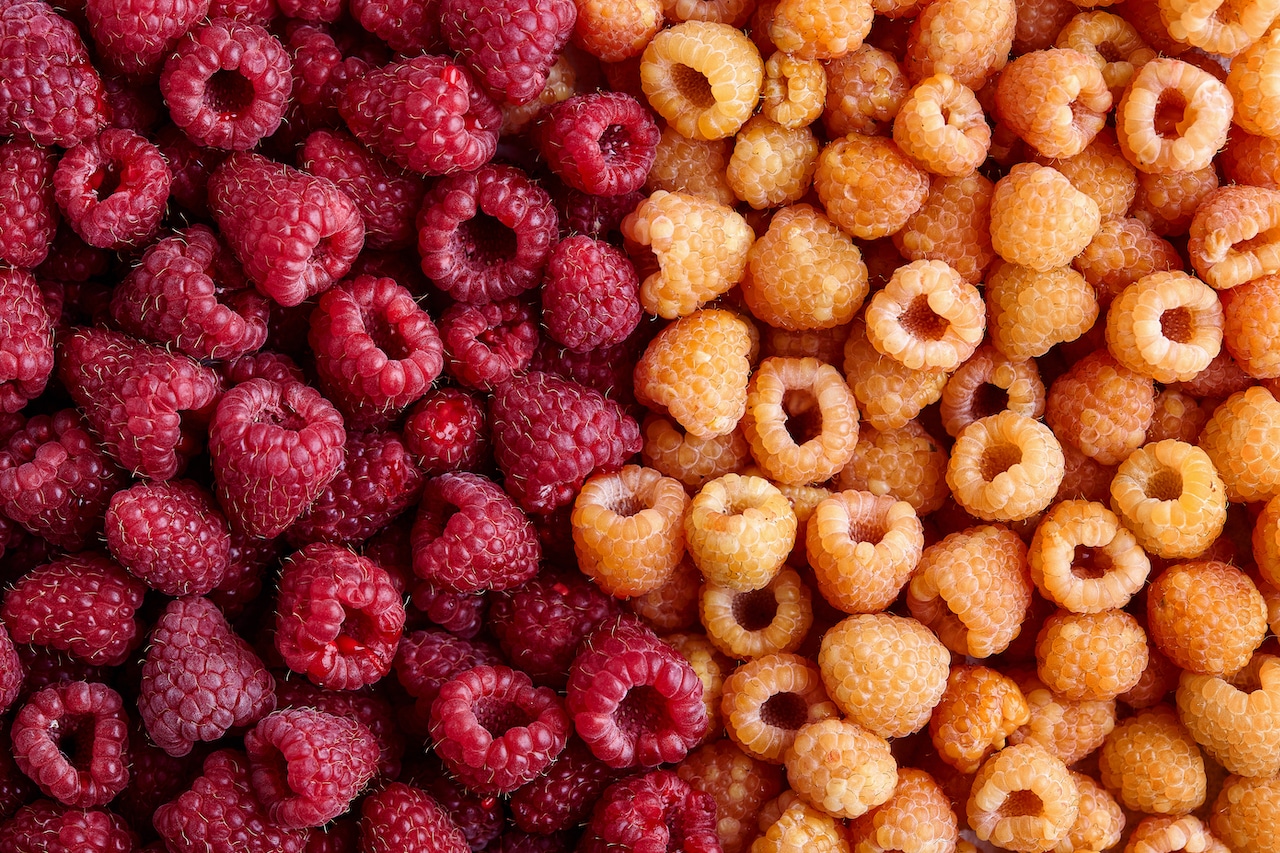
If you’re looking for a high-fiber fruit, reach for raspberries. One cup of raspberries contains an impressive 8 grams of fiber. For reference: women are recommended to eat about 25 grams of fiber daily, so a handful of berries at breakfast can provide nearly a third of your daily fiber needs.
RELATED: Only 5% of Americans Eat Enough Fiber—Here’s Why You Should Eat More
18. Sprouted Whole-Grain Bread
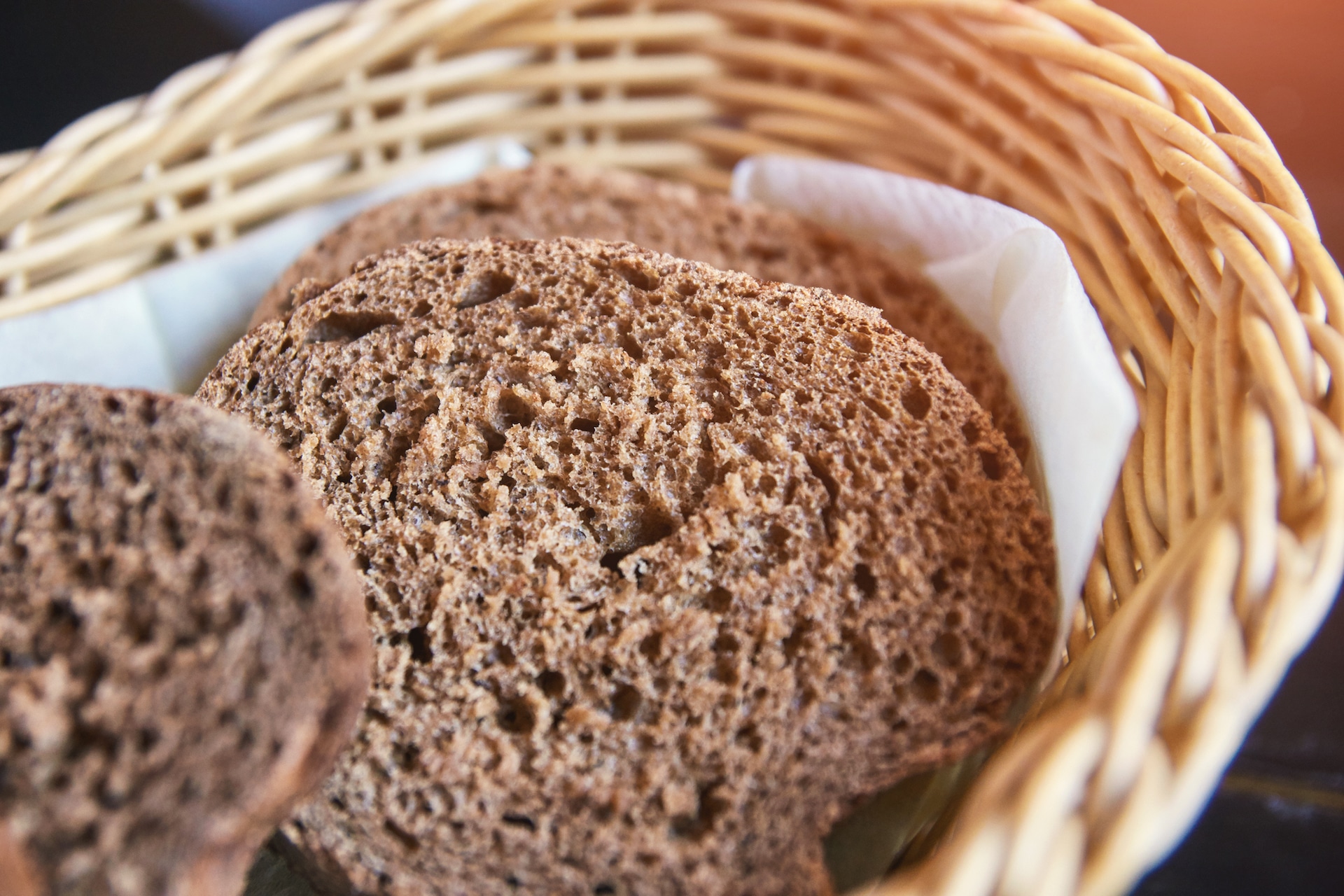
We’re mega fans of sprouted starches, which are more digestible and nutrient-dense compared to alternatives like white bread that’s had its fiber removed. Pair a slice of sprouted whole-grain bread with a spoonful of almond butter and some mashed berries for a grown-up PB&J that’s high in fiber.
(Images: Shutterstock)
Anthea Levi, MS, RD, is a Brooklyn-based registered dietitian and health reporter. She currently works in private practice at Culina Health and contributes to various media outlets, including Livestrong.com and Nutritious Life.
RECENT ARTICLES

Want a sneak peek inside the program?
Get FREE access to some of the core training materials that make up our signature program – Become a Nutrition Coach.
Get Access Eat Empowered
Eat Empowered













































































































































































































































































































































































































































































































































































































































































































































































































































































































































































































































































































































































































































































































































































































































